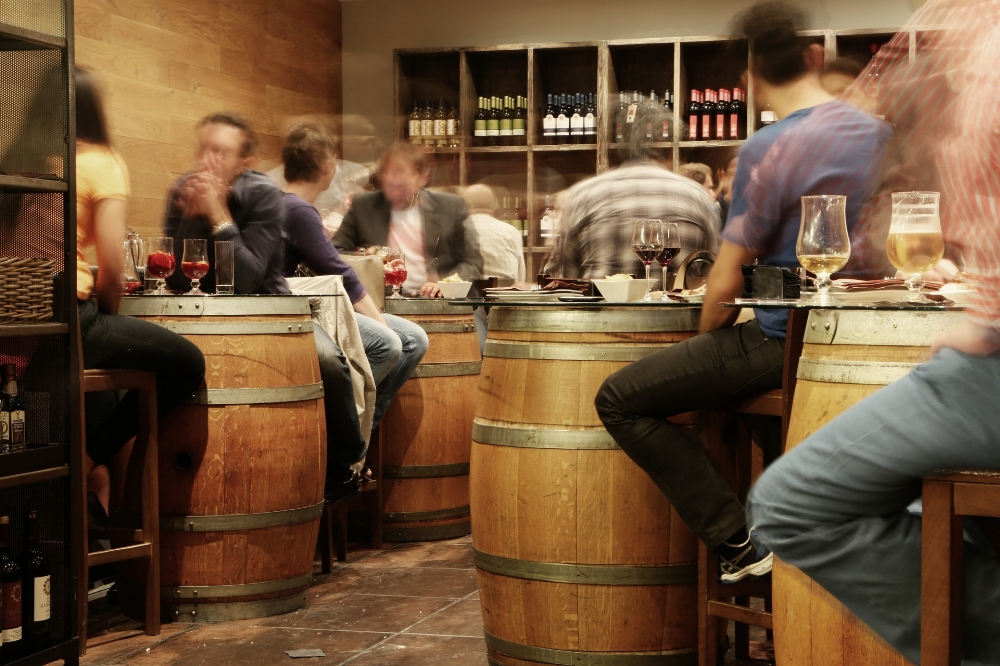
Language Learning: It’s all about Confidence
Dear Gabby,
As someone who has traveled a fair amount and has both taken and taught languages classes, I want you to know that one of my top tips for learning/teaching a new language might not be what you expect: you have to be confident in yourself. We have talked before about how you can use tools like Duolingo or reading in a foreign language to improve your skills but I honestly think that this characteristic outweighs the majority of preparation that you will do. In my experience the person who is ‘best’ at a language (read—the ‘best student’) isn’t usually the best at communicating, whether it be by writing or speaking, because they tend to be worried about ‘getting it wrong’ or they might spend so much time studying that they never really put it to the test. On the contrary, the person who tends to be the ‘best’ when it comes to communicating is the person who is willing to break out of his or her shell and just go for, taking advantage of every opportunity to practice.
Now, if you are a shy person, it can take ages for you to feel comfortable enough to want to communicate with others in your non-native language. However, I can promise you that the sooner you get over this emotion hump, the faster you will be able to assimilate into the culture around you and learn with native speakers. And, as I have mentioned before (as I naturally feel like I am a socially awkward person), if all else fails, fake it till you make it! Trust me, I know it’s hard to even contemplate not caring that you sound like a fool just so you can get better, but it does get easier—and if your Spanish (or other language) is better than the other person’s English, they won’t be judging you for one minute.
True story: I was recently in Tuscany visiting a good friend (and making new acquaintances with everyone I met because it was a small town) when I tried to communicate something in Italian. Now, I don’t speak Italian so you can imagine this was a bit of a disaster and my good friend laughed at me because “he didn’t even understand me.” However, I was able to laugh it off and tried again. When you are not afraid of failing, you learn both how to fail and try again.
If you are still doubting my methodology (I wouldn’t expect anything less, I wouldn’t have believed me ten years ago either) and cannot fathom how you are even going to get to the fake it stage, I have some ideas for you:
Talk with people you see daily:
Looking to people who are already in your life is a great place to start practicing your language skills. Think about the people who are already in your life and talk with on a regular basis anyway (although maybe not in the foreign language) or people that you are forced to interact with who don’t speak English. This might be a host parent or sibling, a classmate, or someone else who you see at a supermarket or the swimming pool, etc. They should be people who you are already interacting with and make you feel safe when you are around them. If you get to the point where you already trust someone, it might be easier to break out of your shell and try to practice speaking with them, helping you build your confidence for the future.
True story: I am now in a place where my Spanish is pretty good (I would even say I am fluent), but I still make plenty of mistakes. When I was writing my dissertation/final project for my bachelors degree a friend of mine helped me correct it—and boy did it need correcting. However, not only did I end up with an awesome paper, but I have gotten better at Spanish and feel incredibly comfortable when this friend corrects me because I know he does it from his heart.
 Intercambios/One-on-one sessions:
Intercambios/One-on-one sessions:
If you are already comfortable talking with your host mom—or maybe you don’t have much of a choice because they don’t speak English—consider doing an intercambio. We’ve talked about the benefits of intercambios many times before (see the original post here) but I really think that one-to-one intercambios or moments when you can be with one other person—preferably a native speaker—it can really help your confidence levels. When you meet in this sort of situation you can create a trusting relationship with the other person and spend time going over familiar or new topics. And, this way if you get stuck, you don’t have to worry about asking for clarification in front of a group. As you build up confidence with the other person, you will feel less and less embarrassed about getting things wrong or having people correct you. While at first this will only apply to the one other person you are with, your language confidence will build until you see it overflowing into other moments in your day.
Pro-Tip: Go for a one-on-one session before a large group intercambio (read about them here) as seeing a bunch of different people might be more stressful than it is worth and you might not end up practicing any Spanish.
Talk with people you will never see again:
If talking to people you know and have to see again isn’t something you are comfortable with, consider how you can go the other direction and talk with people who you never have to see again. I am not suggesting that you meet with and then avoid them forever, but that you start having small conversations with people who are not regularly present in your life. For example, strike up a conversation with a bus driver or a waitress and you don’t have to worry about what they think of you (trust me, they will talk to so many people every day that they might not even remember you). This way you can slowly build up your confidence to talk to people that you know in Spanish.
How I see it: I sometimes find that it is easier to talk to strangers about subjects that are a little bit more difficult/I am not sure about. There is something freeing about knowing that they are not connected to you or your life in any other way than the exact moment you are in. The number of surprising conversations I’ve had with people I’ve only seen once (both started by me and by them) is amazing!
 Do what you have to do to get out of your comfort zone:
Do what you have to do to get out of your comfort zone:
At the end of the day, all the previous tips are trying to help you figure out how you can get out of your comfort zone and become more confident in speaking Spanish while abroad. Every one of us has different levels of what we are (and are not) comfortable with is different, so try to play to your strengths. That means if you are comfortable speaking with your host mom, invest extra time with her until you are ready to talk to others. If you are better at talking with random people, try out a bunch of different coffee shops and bars around the city you are in and start chatting to a waiter or another person who is just hanging out. Especially elderly people or people who are having a quick coffee are usually open to having a short chat. The more you practice and push the limits of your comfort zone, the better you will get and the more confident you will be.
True story: My first group intercambio here in Granada was a great experience, but to be able to get there I really had to psyche myself up. I didn’t want to go because I was nervous/embarrassed/not confident at all. However, it wasn’t as bad as I thought and I ended up going back multiple times, meeting some amazing people.
Have fun with it:
At the end of the day I don’t want anyone having a panic attack because the girls at Sincerely, Spain told them they should do something that they are not ready to do. Learning a language is hard—trust me, I’m on number three and I am more nervous than you would ever expect—which is why it has to be fun too! Try to do something that you like and know you are good at and pair it with your language learning. If you are a singer, go to karaoke, if you are a dancer, go out dancing. Anything from doing yoga to playing football to painting can be turned into a way to speak a language with confidence because you already know that you are good at one of the two activities.
Pro-tip: What kinds of things would you do in your normal life back home? Figure out ways to incorporate those activities into your Spanish life and see how much your language confidence improves.
What’s your number one way to feel confident while speaking a foreign language?
Sincerely,
Spain




